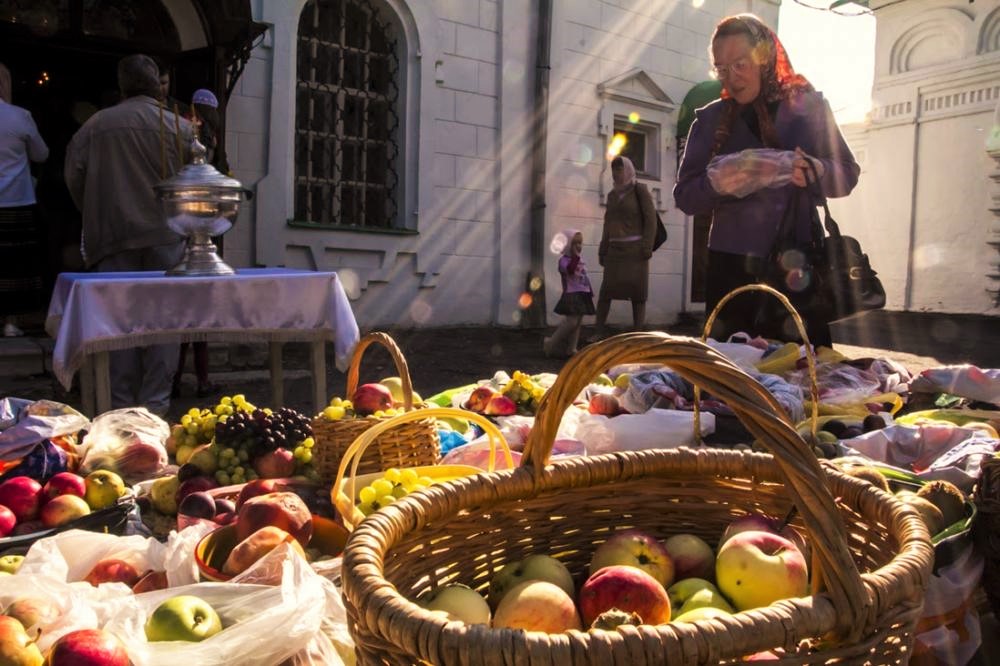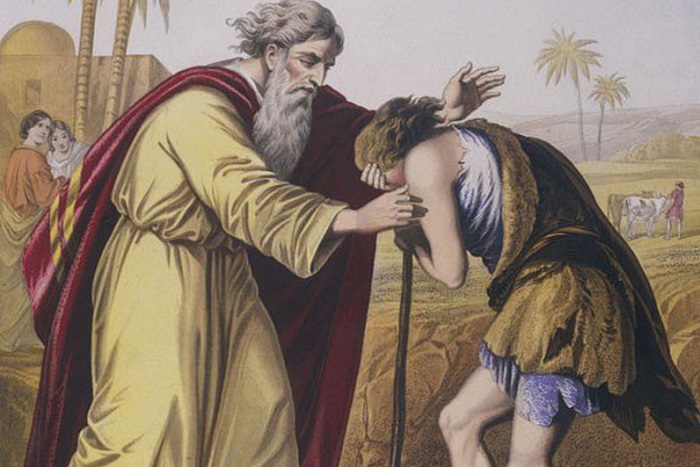
The Church prepares us for the beginning of the Great Lent step by step. We have been reminded of Zacchaeus who was seeking Christ and received mercy from him. We have heard the parable of the publican and the Pharisee and found out why the former was more justified than the latter. Today, we are invited to ponder on our Savior’s parable of the prodigal son, which most of us already know. The young man who wasted all his possessions returns to his father and, upon acknowledgement of his unworthiness, unexpectedly receives four gifts that he doesn’t consider himself to be worthy of. What are those gifts and what are they intended for?
1. The first gift of the merciful father is a robe. The father orders his servants, Bring forth the best robe, and put it on him (Luke 15:22). While we understand the literal meaning of this gift – the prodigal son was in rags and needed new clothes – what was the spiritual meaning of that gift? Does that verse have any bearing on each of us, too?
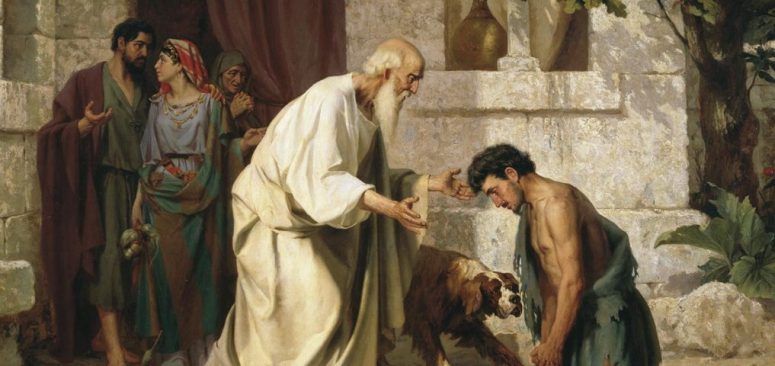
When the original human couple were still in heaven and didn’t trespass God’s commandment, it is said that they were both naked, the man and his wife, and were not ashamed (Gen. 2:25). St. John Chrysostom, St. Ephraim the Syrian and other Holy Fathers say that Adam and Eve weren’t ashamed of their nudity because they were covered by the divine glory and immortality but as soon as they trespassed the Lord’s commandment, the eyes of them both were opened, and they knew that they were naked; and they sewed fig leaves together, and made themselves aprons (Gen. 3:7). The best robe mentioned in the parable of the prodigal son is nothing other than the robe of light, the robe of God’s glory that a sinner gets back as a result of his or her repentance. According to the Church doctrine, that robe is handed at the time of the Sacrament of Baptism to each person who believes in Christ, to indicate one’s renewed status as a son (or daughter) of God and to denote that one’s purity they lost in the past has now been restored. Symbolically, it is expressed by putting the robe of truth, the “shining robe” as it was called by St. John Chrysostom, on the newly baptized person. We are not always able to preserve our baptismal robes clean, even though we promised God to keep them intact. That is why the All-Merciful Lord gives us new opportunities to become clean through the Sacrament of Reconciliation and Confession.
2. [P]ut a ring on his hand (Luke 15:22). A ring has always been a symbol of power and dignity, wealth and status. Patriarch Joseph was put in charge of the Pharaoh’s house; the Pharaoh’s ring, which the Pharaoh himself put on Joseph’s hand, represented that power. A groom and a bride exchange rings to mean that they belong to one another and that they pledge eternal loyalty. Saint Isidore of Seville (†636) and one of the Toledo councils (633) mention the fact that bishops wore special rings, which alluded to their allegiance to their flock. St. John Chrysostom says that the ring is a sign of the received Holy Spirit. Put a ring on his hand, so that he would wear the pledge of the Spirit and would be protected by the Spirit while carrying it. If he wears My seal, he would frighten all enemies and adversaries who would be able to see from afar whose son he is (Exegesis of the Gospel according to Luke, “A certain man had two sons”. Contested Works of St. John Chrysostom).
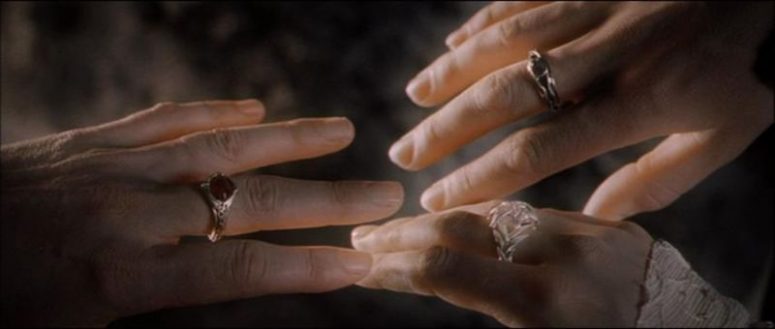
The clothes that we have received along with the prodigal son betoken our reconciliation with God through the Sacrament of Baptism. Likewise, the ring is a symbol of the seal of the gift of the Holy Spirit, which we have received through the Sacrament of Chrismation.
3. The third gift of the merciful father was shoes on his feet (Luke 15:22). Saints almost unanimously contend that we’re given shoes on our feet to be able to tread on serpents and scorpions, and over all the power of the enemy (Luke 10:19), and nothing shall by any means hurt us. Jerome maintains that, the reason why the father gave him the shoes was that the prodigal son “lost the bridegroom’s dignity and was no longer able to celebrate Pascha with bare feet” (Letter 20 to Pope Damasus, on two sons). As soon as we receive them, we are ready to preach peace and must not follow the paths of flesh. Instead, we should tread the paths of the spirit. The third gift reveals to us that God’s gifts may remain fruitless without synergy, i.e., without our creative and proactive application of the acquired grace to the outside world. Simultaneously, the gift of shoes is the gift that symbolizes Christian asceticism, the art of keeping one’s heart and one’s mind free from sin that can besmirch our baptismal robe and steal our ring, i.e., the grace of the Spirit. Without Orthodox ascetic practice we won’t be able to utilize the grace of the Holy Sacraments effectively.
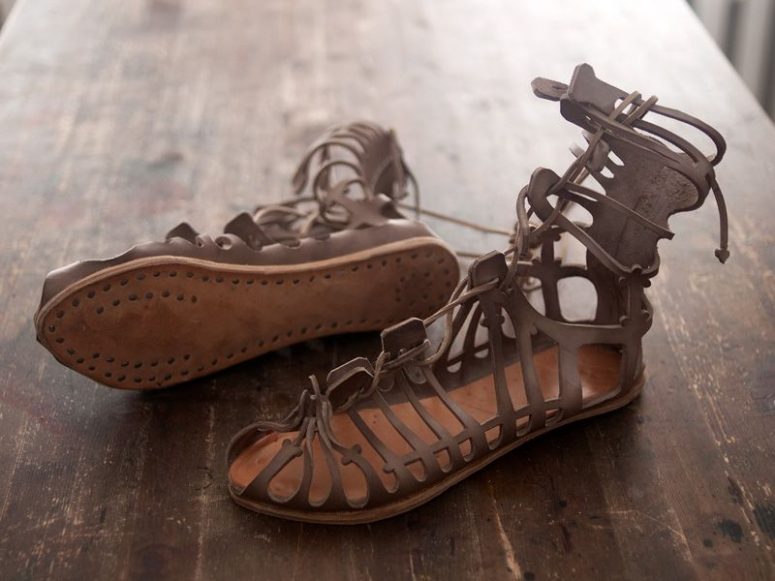
We have too little power to fight the sin. The darkness blocks the light in our hearts sometimes. That is why our loving Father endows us with the last and the greatest gift – the munificence of which surprised even the Angels, who can be seen as the older brothers of us prodigal sons.
4. And bring hither the fatted calf, and kill it; and let us eat, and be merry! (Luke 15:23). Here is the last but probably the greatest gift that the prodigal son received from his loving father. The Church Fathers have interpreted that gift of a fatted calf as the sacrifice of our Lord Jesus Christ who was slain for us. Giving new clothes, a ring, and shoes on one’s feet just isn’t enough if the recipient remains hungry. Thus, the Lord shows us with the parable of the prodigal son that it isn’t enough for our salvation to be enlightened with the Holy Baptism or even to be anointed by the Holy Spirit. Those are the steps that lead to full communication with God in the Holy Sacrament of Eucharist. Indeed, if the symbolism of entering the Church of God can be seen in this parable so clearly, we should also remember that priests usually go all out to give the Holy Gifts to the newly-baptized people immediately after their baptism. A single meal or irregular food intake isn’t enough to support a person’s life. We should take communion to quench spiritual hunger as regularly as we eat food for the body.
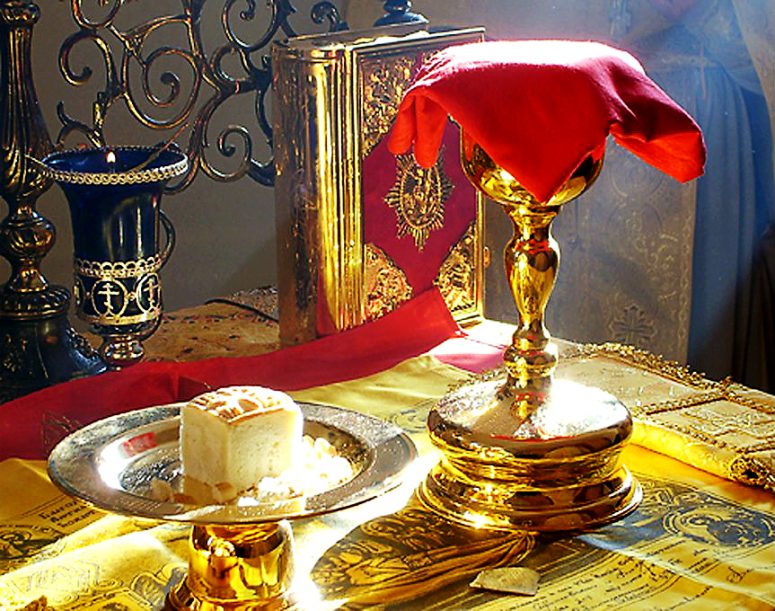
This parable calls all of us to participate in the joy of the Lord and to taste his Kingdom, for that Kingdom is for all people, no matter how far they have gone away from the Lord and no matter how many contemptible acts they have committed. Our Father loves us and looks forward to our repentance. He wants us to come back to him from the exile that we’ve subjected ourselves to. He starts moving in our direction as soon as he notices our willingness to be with him. He prepares his greatest gifts for us. Everyone can receive those gifts.



